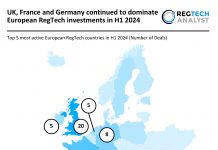The Trump administration has told EU lawmakers to not “overreach” when it comes to regulating artificial intelligence (AI) applications in the private sector.
The ten principles outlined in a fact sheet are aimed at guiding federal agencies to adopt an approach that promoted “fairness, non-discrimination, openness, transparency, safety, and security” when they draft regulations.
It also added that federal agencies should “conduct risk assessment and cost-benefit analyses prior to any regulatory action on AI, with the focus on establishing flexible frameworks rather than one-size-fits-all regulation,” Reuters reported.
The White House urged other countries to follow suit to avoid Chinese competitors getting the better of American tech.
“Europe and our allies should avoid heavy handed innovation-killing models,” it wrote, adding that“the best way to counter authoritarian uses of AI is to make sure America and our international partners remain the global hubs of innovation.”
Many tech companies, including FinTech and RegTech enterprise, use machine learning and AI as part of their offering.
However, the technology has raised concerns from both US states as well as from European regulators about how AI applications can be used to negatively influence cybersecurity, the future of work, control and privacy.
In November 2019, Ursula von der Leyen, then the incoming president of the European Commission, promised to introduce AI regulation with a similar scope of the General Data Protection Regulation (GDPR).
“It is not about damming up the flow of data,” she told MEPs at the time, Tech New Statesman reported. “It is about making rules that define how to handle data responsibly. For us the protection of a person’s digital identity is the overriding priority.”
A similar notion had been voiced by Margrethe Vestager, the European commissioner for competition, in September when she revealed that she was also looking to introduce stricter data rules.
GDPR has already taken a few swings at big US tech firms. In August, Google and Facebook found themselves in regulatory hot waters after they were revealed to be potentially breaching the legislation by listening on audio recordings.
In Google’s case, one contractor hired to listen in on the conversations revealed conversations that they listened to were often sensitive in nature. In one particularly problematic case, the contractor stated that they had heard a female voice in distress and what they thought was physical violence.
Overall, the EU has adopted an increasingly hard line against big tech firms in the past few years, which has resulted in anti-trust cases, fines and potentially new legislation like the one the EU’s commissioner for financial stability pledged to introduce in response to the Facebook-led cryptocurrency project Libra.
Copyright © 2018 RegTech Analyst






